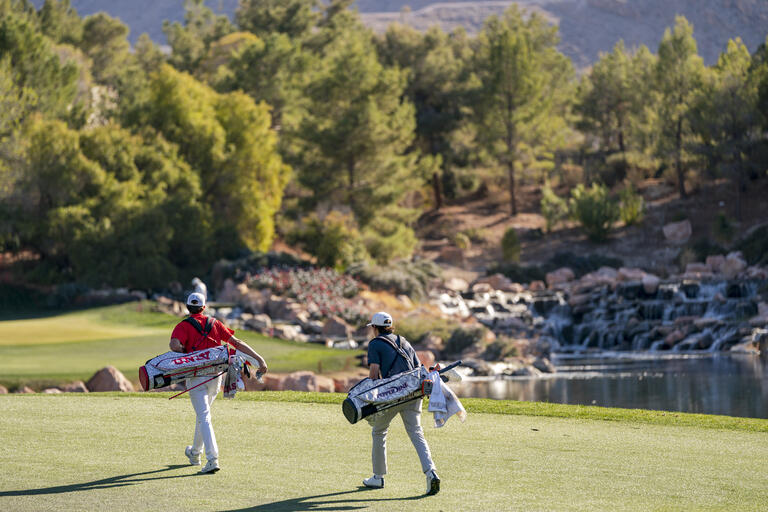It seems clear that — at least for the foreseeable future — digital platforms will have a large part to play in how to maintain our interpersonal relationships during this pandemic, says Natalie Pennington, assistant professor of communication studies.
Pennington’s recent work examines the ways people are communicating, the frequency of those interactions, what they’re saying to each other about COVID-19-related issues, their tone, and how participants feel about the shift to virtual interactions. From feelings of isolation and stress to relief and joy, she's finding that reactions in this unique period run the gamut.
“Some people really love (this new era)," she said. "Other people really hate it. Companies think maybe this changes the workplace. There are so many long-term things to unpack there.”
In May, she collaborated with professor Jeffrey Hall at the University of Kansas and associate professor Amanda Holmstrom at Michigan State University in conducting a 2,000-person survey of Americans on their experiences. She also spearheaded a survey in late April and early May of more than 300 people, including UNLV students.
“It’s really fascinating,” Pennington said. “It’s this moment that we get into where we really think about who we are and what we’re doing. When faced with those questions, it causes you to reflect.”
The research showed that some people are looking at the pandemic as a way to relax, rebuild relationships, and reminisce, Pennington said. Those reflections, aided by the nostalgia of social media features like Facebook’s “On This Day” reminders, can result in outreach and rekindled communications.
Pennington expects many of these lifestyle changes to be long-lasting.
“It’s going to take a while for people to get comfortable. Everybody has a need to belong, and so we communicate with each other," she said. Staying home “can complicate that because we don’t get those casual, relaxed conversations as much.”
Protentional Breakdown in Relationships
Social media angst is not about FOMO anymore – the fear of missing out. Rather, it's flipped. People are experiencing a new set of emotions in that they are getting upset at people posting where they have been going or partying in the age of COVID.
The term “quarantine envy” has been floating around in social circles — how some people look at others' going on vacation, easy work-from-home arrangements, or family get-togethers — and feeling like the pandemic isn’t a one-size-fits-all way of life. That can lead to another feeling called “quarantine-shaming,” Pennington said.
Among the findings of the 2,000-person collaborative survey, a small fraction of respondents expressed frustrations with others who, in their view, were socializing frequently and weren’t taking the coronavirus seriously.
Those strong sentiments, sometimes referred to online as “quarantine shaming,” can be even worse when the people involved are close loved ones.
“Friends or family — you can get mad at them because, ‘Why are you going out? Why are you putting yourself at risk?’ That can negatively affect relationships,” she said.
One commentor, for example, expressed dissatisfaction with people disobeying earlier stay-at-home orders and criticized “selfish ones who have no respect for the other.”
Pennington said such attitudes have likely only grown more common since the survey was conducted in the spring.
Careful Communication
For people who believe their loved ones are being irresponsible, Pennington suggests careful expression of care rather than condemnation.
“It’s about teaching people how to responsibly use technology and get their needs met so they don’t go out and potentially spread the disease,” she said.
Pennington herself began participating in a virtual weekly poker game with friends she hadn't been in frequent contact with pre-pandemic. Such interactions can strengthen bonds and fill the gap left by the absence of those every day, in-person encounters.
“I get to sit there and chat with people, and the games can go on for four or five hours,” she said. “I can just casually talk with people. We need that casual encounter. And I think if I didn’t have that, I would be more inclined to say ‘I need to go out.’”
Pennington said she’s also heard the stories of people who say they prefer or are relieved for the opportunity to communicate with others from afar. The shift to mostly distance communications has allowed some introverted individuals or those for whom constant socialization is taxing to take a step back from everyday socialization.
Pennington said the removal of in-person interactions for those individuals can be a double-edged sword because as much as discomfort can make in-person interactions uncomfortable, humans require such encounters to stay healthy.
Pennington generally discourages so-called “doomscrolling,” or wading through negative story after negative story.
People should recognize when they’re engaging in those behaviors to prevent fatigue or anger, she said.
“Knowing what we know about how communication plays a role in our overall mental health and well-being, we should be getting those interactions,” she said. “We can’t just cut them all out.”
Some relationships have also faced strain as family members, friends, and acquaintances fight over the best way to handle the “new normal” of social distancing.


